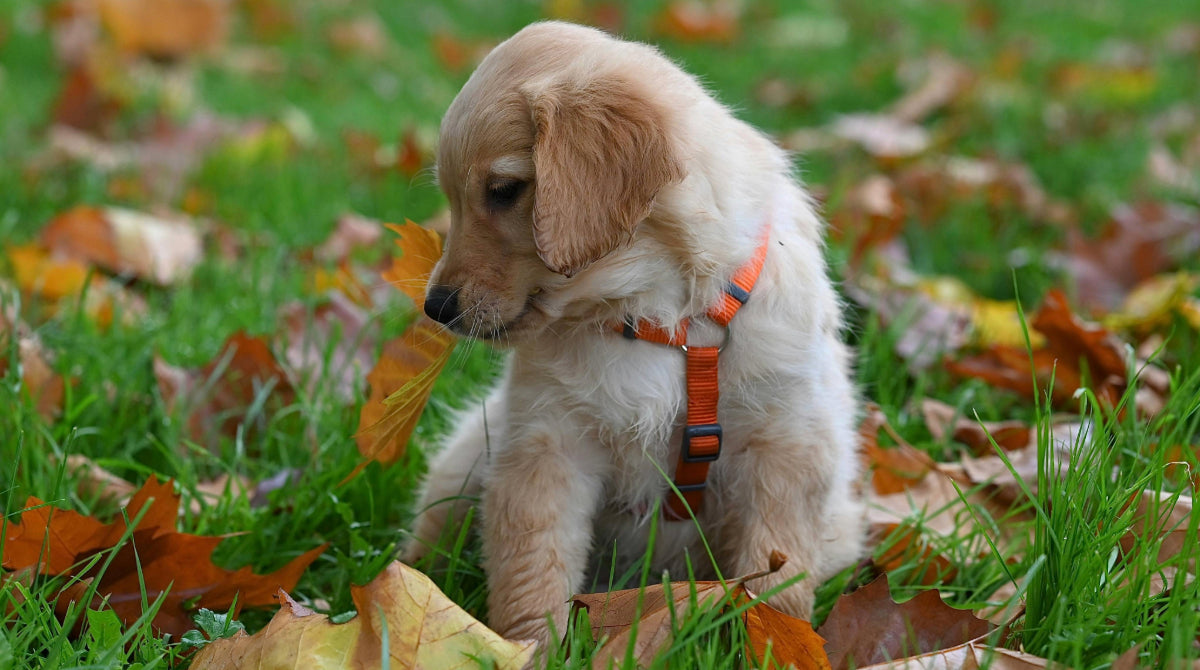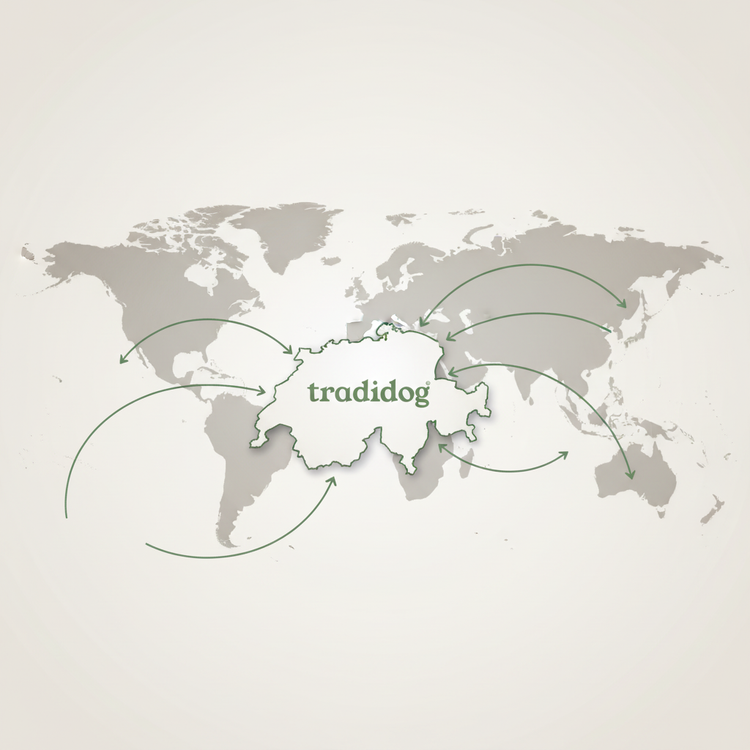
Why dogs eat grass
You're leisurely strolling through nature with your dog, and suddenly he stops. Instead of sniffing an interesting scent or chasing a stick, he begins to nibble on a blade of grass with relish. Sounds unusual? Eating grass is actually a behavior that occurs in many dogs and is often confusing. Is it a harmless snack, a hidden cry for help from your body, or simply boredom? In this blog post, you'll learn why dogs eat grass, when you should pay attention, and how to better understand this behavior.
Why do dogs eat grass?
Let's start with the most important question. There are several explanations for why dogs eat grass. Here are the most common:
- Instinct and remnants of evolution
Our dogs are descended from wolves, and wolves occasionally eat plants to supplement their diet. Prey animals such as rabbits or rodents that wolves eat often contain plant matter in their gastrointestinal tract. So, your dog may be following a natural instinct by eating grass.
- Nutrient deficiency
Some dogs eat grass because they're looking for certain nutrients or fiber that are lacking in their diet. Grass can help regulate digestion, especially if their diet lacks plant-based nutrients.
- Stomach problems and self-healing
A common theory is that dogs eat grass to relieve nausea or stomach problems. By eating grass, they often stimulate vomiting and clear their stomachs of indigestible substances or irritants.
- Boredom or stress
Sometimes it's simply a form of entertainment. When dogs lack mental or physical stimulation, they seek out alternative activities—eating grass is one of them. Stress or nervousness can also trigger this behavior.
- Simple taste
Yes, grass can be delicious! Some dogs just seem to enjoy it, especially fresh, young grass.
Is it dangerous if your dog eats grass?
Generally speaking, grass-eating is harmless for dogs in most cases. However, there are a few things you should keep in mind:
- Pesticide and chemical hazards: Grass growing in public parks or along roadsides may be treated with pesticides, herbicides, or other chemicals. These substances are toxic to dogs and can cause severe poisoning.
- Parasite risk: Grass can also harbor parasites such as lungworms or other pests. These can enter your dog's body through the grass.
- Excessive grass eating and vomiting: If your dog vomits frequently after eating grass or if it becomes a compulsive habit, it could indicate an underlying problem, such as an upset stomach, gastritis, or other digestive issues.
What can you do if your dog eats grass?
- Observe the behavior: If your dog eats grass occasionally, it's usually nothing to worry about. Notice whether he eats normally afterward and whether he seems comfortable. If the behavior becomes compulsive or additional symptoms appear, you should take a closer look.
- Check your dog's diet: Make sure your dog is getting a balanced diet. If you feel he's lacking fiber, you can offer vegetables like carrots or pumpkin to meet his needs.
- Choose safe grass areas: Only allow your dog to graze on grass that hasn't been treated with pesticides or other chemicals. Your own yard is ideal if you can ensure that no hazardous substances are used.
- Consult your veterinarian: If your dog is eating excessive amounts of grass, vomiting frequently, or exhibiting other health problems, a visit to your veterinarian is recommended. They can determine if there is a health issue and what treatment is appropriate.
Home remedies and alternatives
If your dog eats grass out of boredom or nutrient deficiency, you can offer him alternatives:
- Vegetables and fruits : Carrots, cucumbers or apple slices are great snacks that also provide fiber.
- Herbs and cat grass : Cat grass is non-toxic and offers a safe alternative if your dog finds eating grass a pleasant activity.
- Sufficient activity : Provide enough mental and physical stimulation to avoid boredom.
As you can see in the picture below, dogs love to let off some steam. Therefore, we believe in the principle of live and let live, as long as it's within normal limits.

Conclusion
Your dog's grass-eating behavior may seem strange, but in most cases it's harmless and often instinctive. As long as your dog is healthy and isn't eating dangerous amounts or contaminated grass, there's nothing to worry about. However, it's worth observing their behavior and ruling out possible causes such as boredom, nutrient deficiencies, or stomach problems. If you're unsure or if there are accompanying symptoms, it's always best to consult a veterinarian. Ultimately, the goal is to keep your dog healthy and happy—with or without grass.
Tradidog motto: If he eats a little grass every now and then, take it easy and keep having fun!
Share

